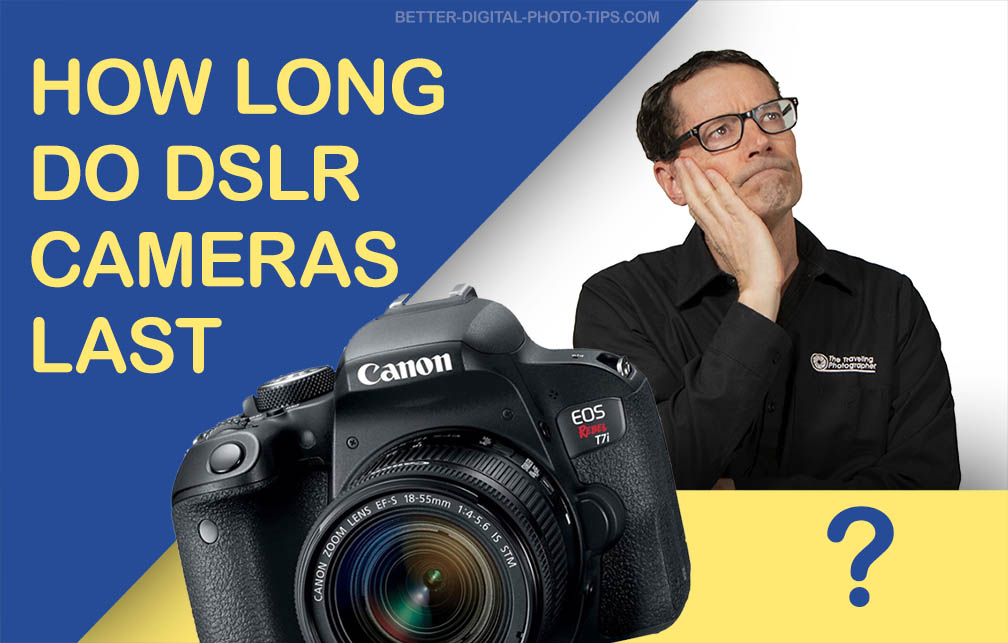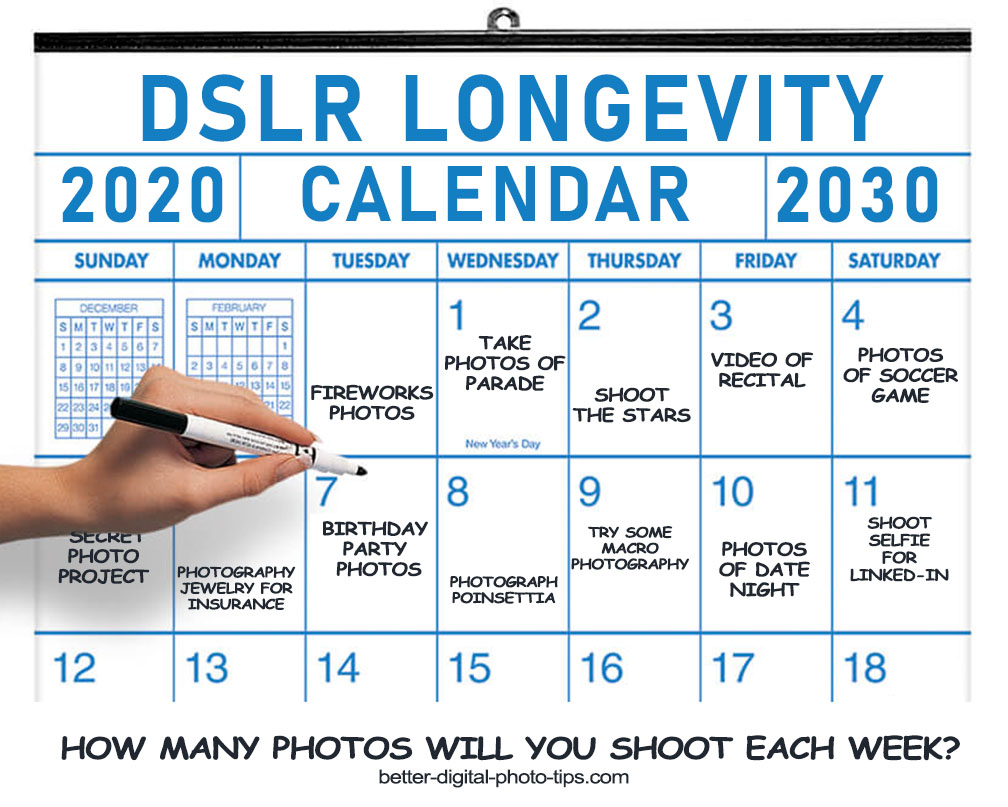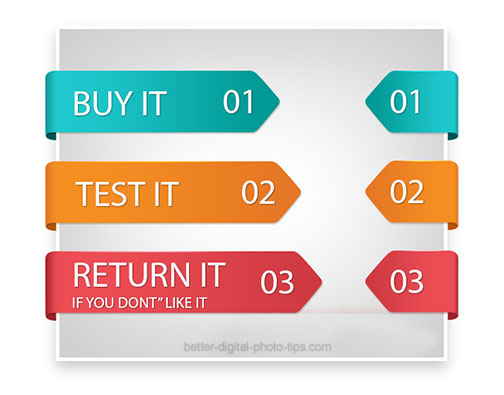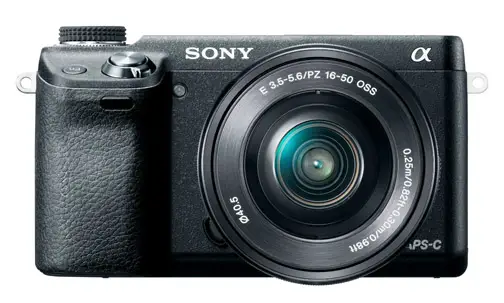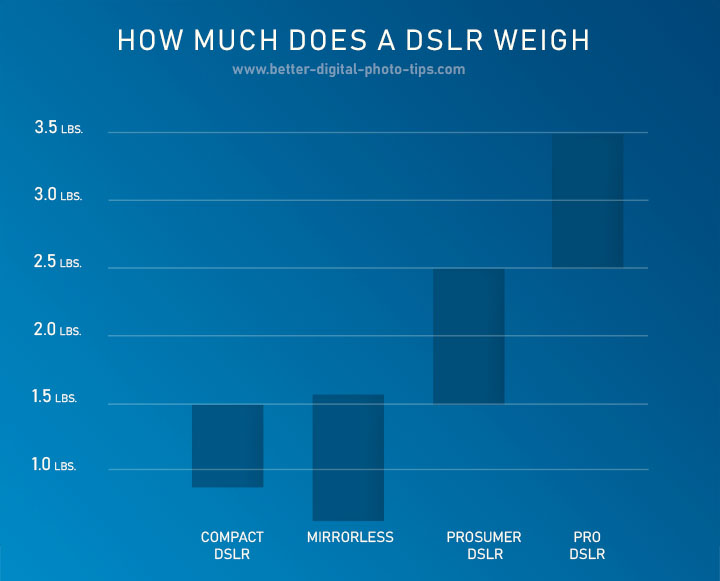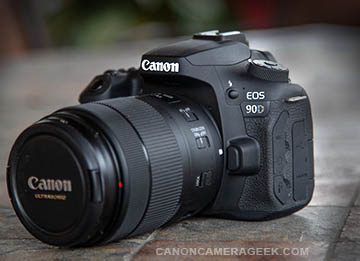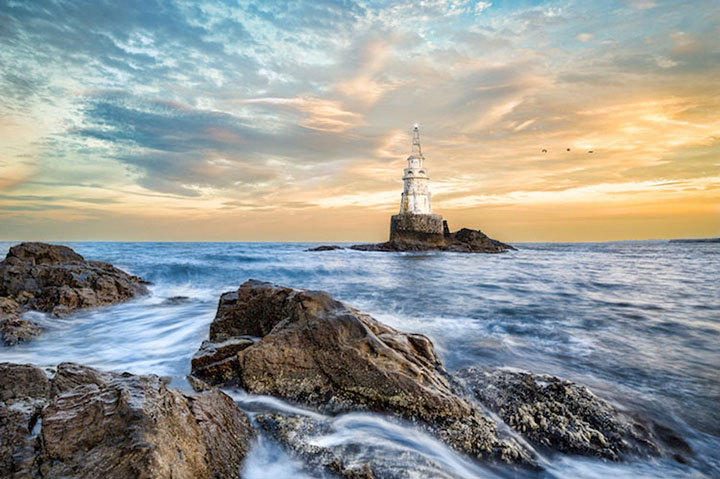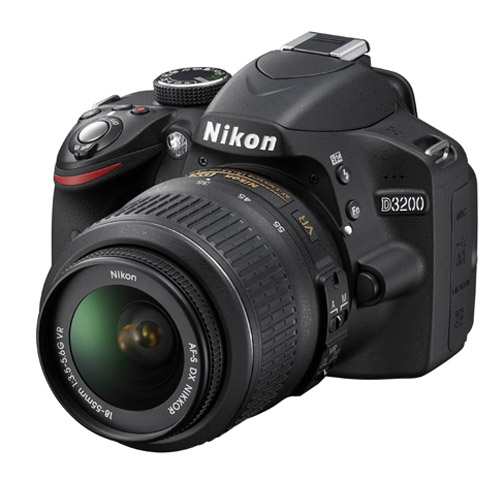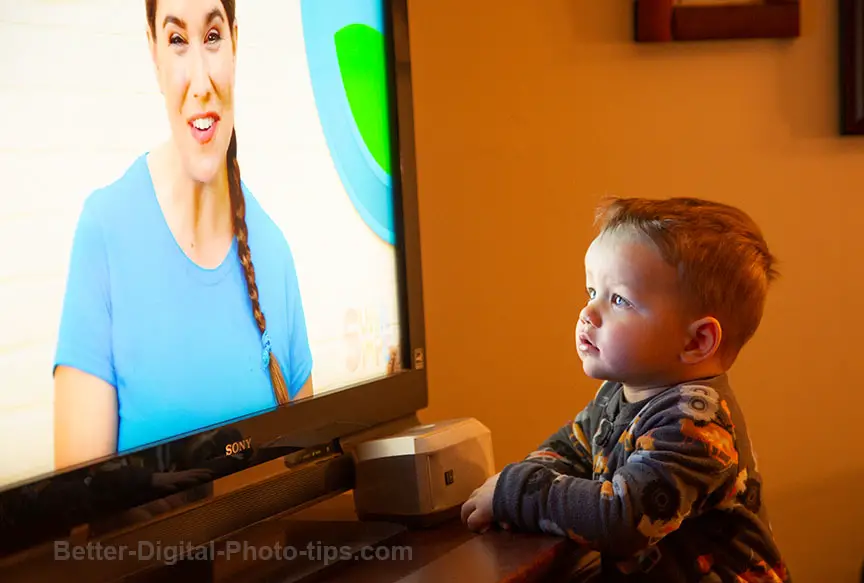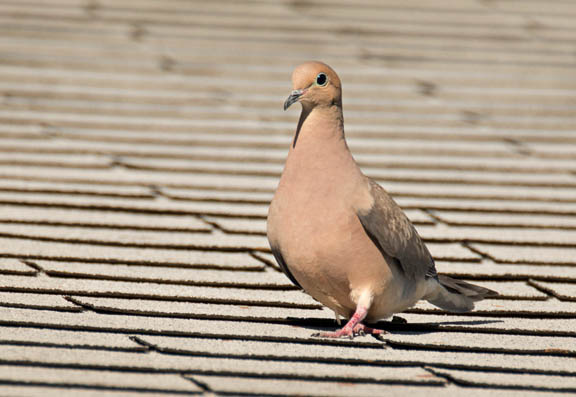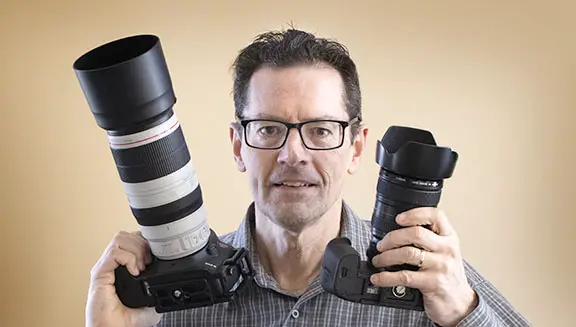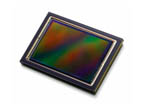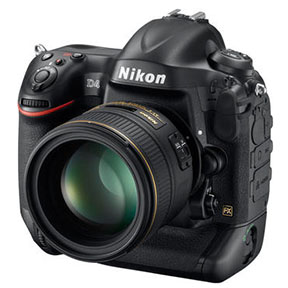HOW TO POSTS: LIGHTING AND COMPOSITION
how long do DSLR cameras last
WRITTEN BY: BRUCE LOVELACE
PUBLISHED ON: NOVEMBER 15, 2023
You want to know how long do DSLR cameras last. The quick answer is that most DSLR cameras will last 5-10 years. It's more likely that it will become outdated or that it will get damaged before the shutter wears out. This post will explore the aspects of DSLR durability and longevity that you need to know about.
If you're thinking of taking the plunge and buying a DSLR, it could be because you want to experience photography in a more advanced way than just taking snapshots with your smartphone or an outdated point and shoot camera. It's important to know about how long your DSLR will keep working.
Here's a chart on the life expectancy of 6 popular DSLRs in terms of how long the shutter will keep working for you. These are typical ratings for all digital SLR-type of cameras.
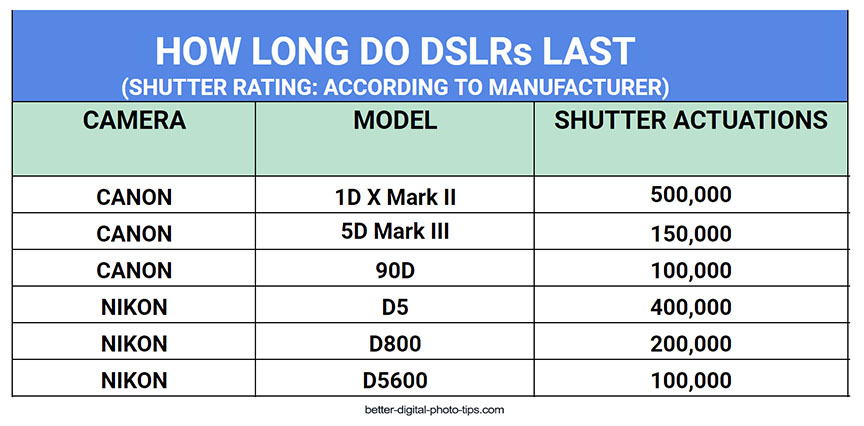 This chart shows a few DSLR cameras and their shutter count expectancy.
This chart shows a few DSLR cameras and their shutter count expectancy.You can see that shutters last a long, long, long number of uses.
It's smart to want to know if a new camera will be durable enough to justify spending a decent amount of your hard earned dollars on one. Shutter life is just one factor to look at. There are other factors that will impact how long a DSLR will function and keep delivering great photos. Damage from sudden impact, electrical charges, and water can also affect your camera's durability. We'll get to them in more detail in a second. First, how long will a DSLR work for you?
how many pictures can a DSLR take
If properly cared for your DSLR only has one moving part that will wear out, its shutter/mirror system. When you take a photo with a DSLR, a mirror flips up out of the way, the shutter opens, and the exposure is made.
You can see, from the chart above, that today's DSLR cameras are built to last a long time. Most are designed to work for a minimum of at least 100,000 shutter actuations with the high end prosumer and pro cameras rated to last for at least 400,000 or more shutter actuations.
The good news is that it's extremely unlikely that you'll wear out a shutter before you're ready to change cameras anyway. Many photographers are more likely to want to upgrade with a new camera to gain quality, features, or performance. I still have students in my classes that are using cameras that are 10 years old or older.
A big part of the equation is how many photos you really take each week or each month. That will help you figure out how many years your camera will last. Use a mock calendar like the one just to estimate how many photos you take in a months time.
what damages your DSLR
Think about that for a second. If your camera is rated at 100,00 actuations and you take 50 photos every single day of your life, your camera is rated to last you about 6 years. Most cameras can go well past their ratings, too. A small percentage of them won't last that long, but the odds are heavily weighted in your favor.
Here's an example of the shutter count from the camera count that I use the most for shooting portraits for clients and landscapes for leisure.
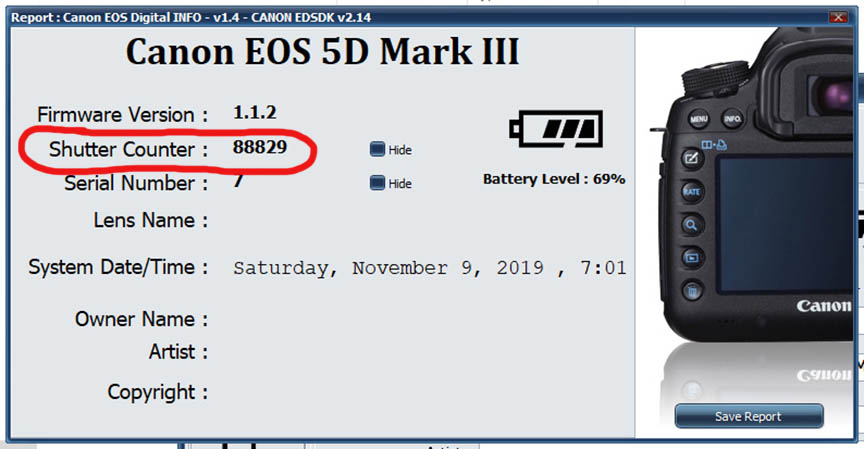 I had to download software to get the shutter count on my Canon 5D Mark III.
I had to download software to get the shutter count on my Canon 5D Mark III.It took me 5 years to get to less than 90,000 shutter actuations and I shoot photographs for a living. Your use is likely less than mine. Of course, I'm not shooting weddings every weekend. Nor am I shooting dozens of sports leagues and pres-schools each year.
In addition to wear and tear from simply using the camera, the more likely reason you'd have to ditch your camera is from severe damage. Let's look at how damaging your camera could reduce its life expectancy.
IMPACT. Damage from a sudden impact is one of the most common ways your camera's useful life will get compressed. Minor accidents like cracked LCD screens can be repaired, and broken lenses can be replaced or fixed. If you drop your camera out your moving car window when you're photographing a deer next to the highway, your camera is likely done.
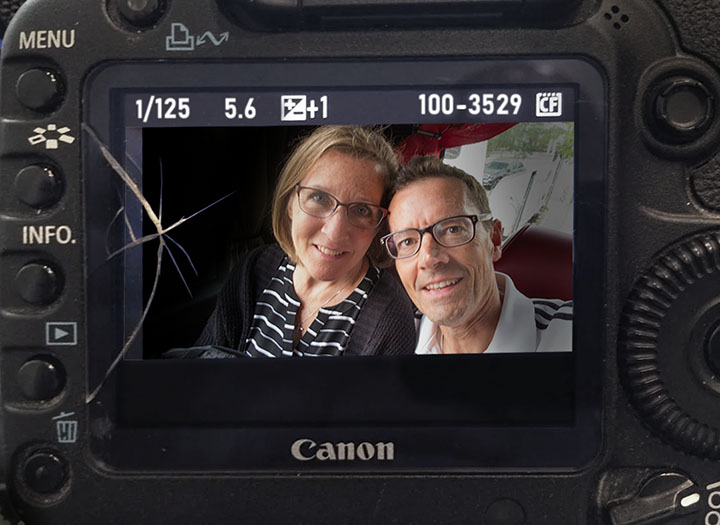 Improve how long your camera will last by protecting it.
Improve how long your camera will last by protecting it.Cracked LCD screens can be repaired.
WATER. This is likely the most common mishap that wreaks havoc on a camera's useful lifespan. Cameras that are dropped into water, particularly salt water, are subject to corrosion and damage to delicate electronics pretty quickly.
ELECTRICAL DAMAGE. This is the least likely way to damage your DSLR and shorten its useful lifespan. Theoretically, a large static charge could blow out your sensitive circuits within your camera, but it's very unlikely.
The only digital camera I ever damaged in a significant way was early on and it was from electrical damage. I directly connected a sync cord to an older studio powerpack and blew out the shutter. The shutter repair was several hundred dollars.
how to make your DSLR last longer
Protect your camera from impact. Obvious ways are to you a camera strap and a protective camera bag when you travel. When using a tripod, double check that all the legs are tightened. You don't want a collapsing tripod to break your DSLR.
It's best to avoid all exposure to rain and water if possible, but sometimes accidents do happen. Water damage can be minimized if you take the following steps immediately.
- Turn off the power right away.
- Dry the outside completely with a soft cloth.
- Take out the batteries and memory card.
- Dry your camera out completely by putting it in a sealed bag of dry rice for a few days.
Avoid extreme temperature changes. Particularly extreme cold to warm. Allow your camera to warm up slowly, within a camera bag, to prevent damaging condensation from wreaking havoc on your camera.
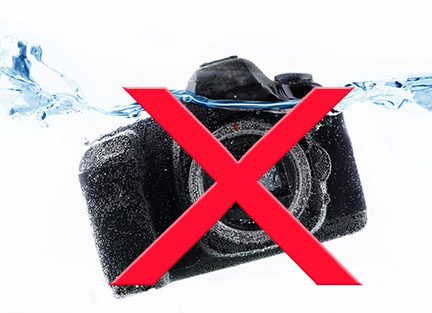 Don't Dunk It!
Don't Dunk It!when your camera becomes obsolete
 A Partial History of my DSLR Cameras
A Partial History of my DSLR CamerasIt's more likely that you'll eventually want a new DSLR or a mirrorless camera before your old one wears out. One of the biggest reason people stop using their DSLR is because it falls behind in terms of technology advances in such a relatively short time.
If you look at my DSLR camera record below you'll see that I've made technology updates in DSLR 4 times over a 18 year span. This doesn't have to be your scenario at all.
The digital camera market has matured so much since those early days and the technology built into today's DSLR cameras is more than enough to require any upgrades for you.
common repairs to make your camera last longer or perform better
Here are some of the maintenance and repair steps that you might face when using a DSLR camera.
- Clean your lens - this is one task that you can make a do it yourself project
- Camera sensor cleaning - I did this once on my own. Now I pay a professional to do it
- DSLR camera lens calibration - this is easy to do on your own.
- Camera LCD screen repair - can be done on your own. I'd pay a pro on this one too
- Camera shutter replacement - I did this once when I blew out my sensor with an electric surge
- Repair camera damage from sand or water - be careful if you do any beach photography
- Repair damage from impact - if it's significant, you're better off upgrading with a new DSLR
Do digital cameras lose picture quality over time?
Generally speaking, digital cameras do not lose quality over time. The only way your camera will decline in terms of picture taking quality is if its sensor or the lens you're using is affected adversely first. This can be from:
DIRT, SMUDGES, SCRATCHES, LIQUIDS on the lens surfaces or inside the lens. This can cause loss of sharpness, flare, and chromatic aberrations.
DUST. Accumulation of dust on the sensor can cause spots. For there to be a loss of resolution on a DSLR sensor, you'd have to have a coating of dust or oil spread out over its surface. Many DSLRs now come with an automatic sensor dust cleaning function each time you turn the camera on or off. You can also have your sensor cleaned by a professional or do it yourself if you're extremely careful.
ELECTRICAL. Excessive heat, static, or electrical charges can damage any electrical component, including your sensor your sensor can cause dead pixels.
MECHANICAL. Moving parts that wear out or become overly worn can leave the sensor out of alignment. A loss of alignment could leave to uneven focus.
Stuck "false-color" pixels are not totally uncommon, can increase as a camera ages, but may not be noticeable in may of the photos you take. It can be very annoying to have to use software to retouch the same pixel each time you take a photo.
DO DIGITAL CAMERAS WEAR OUT?
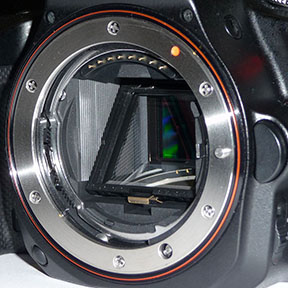 DSLR Mirror
DSLR MirrorYes, but the vast majority of users will never ever experience a worn out DSLR camera. You simply won't use it to the extent that will cause a breakdown.
Is it possible to wear one out? Yes, particularly if you continuously use it under extreme conditions or if you shoots hundred of images every day, every month, every year!
The mirror mechanism is one moving part that can break, but it simply doesn't happen very often.
Do professional photographers still use DSLR Cameras?
Most professional photographers have switched to mirrorless cameras from DSLR cameras. The two biggest reason are wanting to upgrade from their current DSLRs and the aspiration to experience the new technology. According to a survey, 0ver 70% of professional photographers are now shooting with mirrorless cameras instead of DSLRs.
I shoot with both. I've been shooting portraits professionally with DSLRS for over 20 years and I won't switch now. I shoot with mirrorless, currently a Canon 6D Mark II, for everything else. that includes landscapes, seascapes, wildlife and birds, architecture, and family candids,
CLOSING remarks on DSLr durability
How long your DSLR will last is something you simply don't have to worry about when considering investing in a quality camera. If you just pay attention to taking decent care of it you likely won't have any major issues in getting to use it for a long time.
If, on the other hand, you're buying a used camera, it makes sense to find out how many times the shutter has been used. You can get some great bargains on being a used camera, even if it's not that old, rather than buying brand new.
Keep shooting. Keep learning. Keep improving.
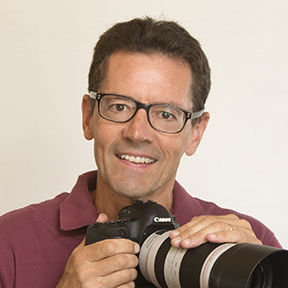

ABOUT BRUCE LOVELACE
Bruce is the publisher of this website. He is the author of the book "Improve Your Photography Instantly." Read more on Bruce on his Bio Page. He's been known as The Traveling Photographer ever since 1994. Read more about this website.
View some of Bruce's photos on Instagram. Visit the Facebook Page. Watch him on YouTube. Bruce runs photo workshops for kids and adults, and provides one-on-one photography coaching.
Digital Photography Education Location on Google My Business
